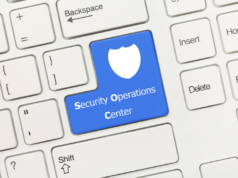
Digital forensic investigators play an essential role in solving computer-based crimes. A sub-division of forensic science, digital forensics is alternatively known as computer forensics.
With the widespread use of web applications for banking, transactions, and other services, the pandemic-induced remote work has resulted in a massive jump in digital-based crimes. Cybercrime has increased 600% since the pandemic, according to Embroker statistics. As a result, there is a significant need for digital forensics investigators to look into these crimes and assist with data recovery operations.
So, if you are a cybersecurity enthusiast with critical and analytical skills, tracing computer-based crimes may be apt for you.
This article discusses the necessary skills, educational requirements etc., that can help you build a rewarding career in the digital forensics domain. But before we go into the details, let’s learn briefly about this field and the responsibilities of a digital forensic investigator.
Who is a Digital Forensic Investigator?
A digital forensics investigator is a trained professional/expert with impeccable knowledge of forensics principles, data acquisition, and legal procedures hired by law enforcement agencies and private firms. They are required to have an exceptional practical understanding of various concepts pertaining to digital devices (hardware related, software related, encryption, decryption etc.) for conducting a digital investigation. Identifying, collecting, storing, and documenting computer data using digital forensics tools to produce the necessary evidence that may be utilized in a court of law, is known as digital forensics investigation.
During the investigation, the digital forensic expert must understand, reconstruct, and analyze the crime scene, consider which digital device can be regarded as evidence, and extract the required data from the digital evidence. They are responsible for collecting evidence from the crime scene and preserving the pieces of evidence, lest they are tampered with.
The role of the digital forensic investigator differs depending on the nature of the case, i.e., recovering data (erased or lost data), incidents such as hacking and online frauds/swindles, or tracking sources (perpetrator) of a cyberattack. So, they need to learn the various digital forensics steps and phases to execute their tasks in a logical and systematic manner.
Advancing your career as a digital forensic investigator, one must gain specific skills, which we shall highlight in the next section.
Digital Forensics Skills and Requirements
In order to perform the tasks of a digital forensic investigator or analyst, one must be proficient in certain areas besides acquiring specific skills or certifications. The following are the basic set of skills and requirements one must acquire to become a successful digital forensics expert:
Education Requirements
A background in computer science or an equivalent is crucial to begin your career in this field. A bachelor’s in criminal justice can also be a viable option for one to pursue combined with computer forensics training later. Additionally, you can also earn your certifications online from a credible agency or institution. Employers’ requirements vary depending on the kind of profile they are hiring for. Getting a bachelor’s or master’s degree in cybersecurity specializing in digital forensics can also advance your career.
Common Skills
There are certain skills you need to hone to gain mastery in this field. Some common skill sets are discussed below.
- Networking Skills: Sound knowledge in networking and connectivity concepts can help you in identifying a network intrusion.
- Technical Skills: A thorough understanding of the fundamental technical aspects such as networking fundamentals, technical concepts, digital devices, how a system works, knowledge of different OS etc., can help you to acquire advanced certifications
- Analytical Skills: Analyzing the digital evidence and data, cybercrime patterns and attacks etc. requires you to demonstrate critical and analytical skills to think like black hat hackers.
- Communication Skills: As a digital forensic analyst, you need to convey technical information in a simple manner, so working on your communication skills should be on your list.
Comprehension of Cybersecurity Techniques
Broaden your knowledge about the latest breaches, vulnerabilities, risks, malware etc., in addition to being well-versed with the terms and concepts of cybersecurity.
Aspire to Learn
Technology is constantly evolving, and one needs to have the desire to learn and stay updated with modern technologies and evolving scope of attacks.
Work Experience
After obtaining skills and required certifications, gaining relevant experience in the required domain as a computer forensics analyst or an equivalent can help you accelerate your career and land you high-paying jobs as well.
How Can You Advance Your Digital Forensics Career with C|HFI
In addition to the skills mentioned above, one must know the various tools, techniques, and other methods used to conduct an investigation. Moreover, organizations prefer people who are well-versed in the digital forensics process and hold advanced from. Thus, increasing the possibilities of getting a job and qualifies them to be digital forensics experts with comparatively higher pay than other IT professionals. In addition, an accredited certification also enables one to apply in government as well as corporations. According to PayScale, the average pay of a certified digital forensic investigator is $64,900 per year.
Digital forensics is also expanding rapidly to include other branches such as Network Forensics, Database Forensics and so on which further increases the scope of employment in diverse fields.
There are various certified digital forensics courses one can pursue. However, earning a credible certification that aligns with the industry-specific roles can broaden your career prospects. EC-Council’s Certified Computer Hacking Forensic Investigator (C|HFI) program is ANSI accredited which offers vendor-neutral training to organizations. C|HFI’s in-depth curriculum, carefully curated based on the numerous methods and digital forensics tools necessary and employed in an investigation, allows you to build a solid foundation. Further, this course validates your skills to be the finest digital forensics investigator.
20+ Job Roles | 4,000+ Job Openings | Avg. Salary of $96,000
Start your C|HFI Certification and Explore New Career Opportunities in the World of Digital Forensics.
FAQs
- What are the requirements to become a Cyber Forensic Investigator?
You must possess good technical and analytical skills and have in-depth knowledge about the various operating systems and networking concepts. The primary educational qualifications are a bachelor’s degree in computer science, cyber forensics, or computer applications and a certification course like CHFI, which validates your skillset and gives an overall view of the complete work process of an investigator.
- What are the various job opportunities available in computer forensics?
There are numerous job opportunities in the field of computer forensics. One such job role is the cyber forensics investigator, responsible for the thorough investigation of cybercrime. Other roles available are security analyst, network analyst, security consultant, computer forensic technician etc.
References:
- https://en.wikipedia.org/wiki/Digital_forensics
- https://www.guru99.com/digital-forensics.html
- https://en.wikipedia.org/wiki/Digital_forensic_process
- https://www.geeksforgeeks.org/chain-of-custody-digital-forensics/.
- https://www.forensicnotes.com/how-to-become-a-digital-forensics-professional/
- https://cybersecurityguide.org/careers/computer-forensics/
- https://online.champlain.edu/blog/top-skills-required-for-computer-forensics-careers
- https://www.forbes.com/sites/laurencebradford/2017/04/29/6-skills-required-for-a-career-in-digital-forensics/?sh=461908017fa6
- https://www.newindianexpress.com/business/2020/dec/08/cybercrimes-cost-global-economy-over-usd-945-billion-2233285.html










